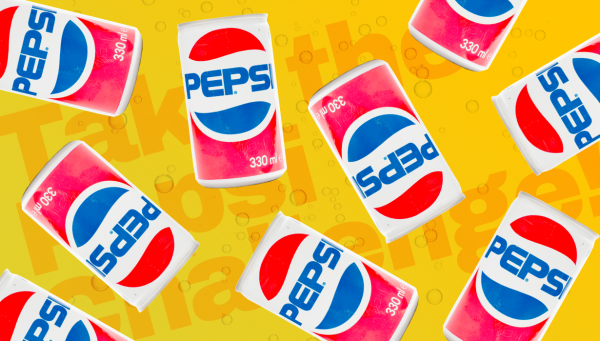
Weird Al can teach you a lot about branding
Learn how branding transformed an entertainer into an essential social commentator (and made his brand thrive over time when other performers’ stars faded).
Branding can make all the difference for a budding enterprise. But what really distinguishes the household name from the obscure? The perennial from the one-hit-wonder? Taking a lesson from the career of “Weird Al” Yankovic, we see how strong branding has allowed a song-parody performer to stake out his own corner in pop culture history. His audience has grown over time, and his persona has gained him a place as an influential social commentator whose work has been renowned for nearly four decades.
Find your identity and solidify your values
A strong brand begins with strong values. Any company or entity with an effective brand can exactly describe its culture, principles and character. Weird Al’s music continually features humor, cleverness and—essentially—weirdness. Through Al’s topical comments to the tune of, and in jest of, our favorite pop music, he celebrates the eccentric in all of us and invites us to examine and embrace our inner misfit. Consequently, weirdness and humor are hallmark values of Al’s brand and anything he produces.
https://youtu.be/ZcJjMnHoIBI
He’s successfully done this now since 1979, with the release of his first single, “My Bologna,” a song about eating bologna to the tune of The Knack’s “My Sharona”—the original a five-minute catcall. To date, Al has released 14 studio albums, with hits including “Eat It,” in a parody of Michael Jackson’s tough-guy song “Beat It,” and “White & Nerdy,” parodying Chamillionaire’s “Ridin’,” on the topic of police brutality and racial profiling. With each of his songs, Al’s clever lyrics juxtapose those of the original in unexpected and humorous ways.
Stay relevant
Though Al has delivered a consistent product, his success hasn’t been without intention to remain current. Al has a keen ability to observe cursory trends and behaviors and make quick, sardonic comments, therefore associating himself with the conversation of today’s culture. In the same way, your brand can demonstrate an informed and current identity through dialogue with your audience. What are your customers passionate about? Talk about those shared interests, and do it through the media they’re already using.
Update your look as needed
Parallel to Al’s material, his physical appearance has adjusted accordingly over time. In 1998, he traded in thick glasses, a mustache and tight curls for a more worldly look: neater, longer-flowing locks and a clean and barren face. Al’s first look met the needs of the first half of his career—pair that quirky grooming with a floral button-up and an accordion, and you’ve got someone with whom I’d entrust all my comedy needs. Today, Al still typifies the adept comic, but he’s a comedy guru from this era. Likewise, subtle adjustments to your organization’s brand position you as a forward-thinking organization and a leader in your industry.
Always be on the lookout for opportunities
While the music industry was humming along for decades in a nicely profitable distribution model (record an album, release a single, go on tour), a new disruptive era in the late 90s brought along by file-sharing services like Napster put the industry in a complete free fall (record an album, people don’t pay for your music because they’re sharing it, go on tour). Not for Weird Al; he spotted an opportunity in the chaos and tested the waters.
Weird Al was among the early artists to explore the digital distribution of their music. His first album available as a digital download was “Running with Scissors,” released in 1999. In 2008, he released a single to iTunes just two weeks after writing it: Al’s “Whatever You Like,” a parody of T.I.’s “Whatever You Like,” was available while T.I.’s song was still a No. 1 single. The adjustment to the digital age was huge for Al, whose brand relies heavily on timeliness, as previously mentioned. Since the release of his most recent album, “Mandatory Fun,” in 2014, Al said he would likely shift to primarily releasing songs over the internet in the form of singles and EPs.
Though “Mandatory Fun” was still a “traditional album,” its release strategy demonstrated Al’s affinity for adaptability: his strategy to release eight singles over eight days, each video through a different major content provider with limited-time exclusive rights, created major buzz and was a huge success. In like manner, your brand can create hype about fresh developments in your space by being accessible through current media, and you can reach new audiences by partnering with natural allies.
Take what you need from Weird Al’s buffet of branding expertise, not to mention steering clear of his favorite corporate buzzwords. By creating a name for your organization with strong values, staying attuned to your audience’s trends, and reaching them where they’re most accessible, you’ll be sure to create a strong brand. And who knows? You might even become big enough to claim the honor of being referenced in Weird Al’s next hit single.
Sources
- “Catalog: Studio Albums,” “Weird Al” Yankovic, http://weirdal.com/product_categories/studio-albums/
- “Frequently Asked Questions,” “Weird Al” Yankovic, http://weirdal.com/archives/faq/
- “Weird Al Goes Digital With T.I. Cover,” Billboard, 6 October 2008, https://web.archive.org/web/20130402124258/http://www.billboard.com/articles/news/1043863/weird-al-goes-digital-with-ti-cover
- “‘Weird Al’ Yankovic On Parody In The Age Of YouTube,” NPR, 12 July 2014, https://www.npr.org/2014/07/12/329873481/weird-al-yankovic-on-parody-in-the-age-of-youtube
- Danton, Eric R., “‘Weird Al’ Yankovic Wraps 8 Days of Videos With ‘Mission Statement’ (Exclusive)” The Wall Street Journal, 21 July 2014, https://blogs.wsj.com/speakeasy/2014/07/21/weird-al-yankovic-wraps-8-days-of-videos-with-mission-statement-exclusive/

